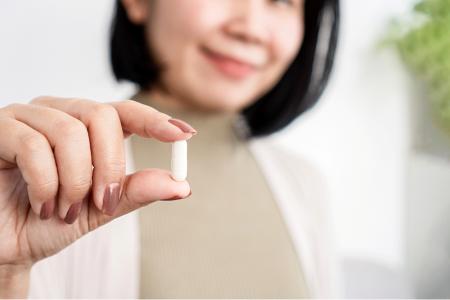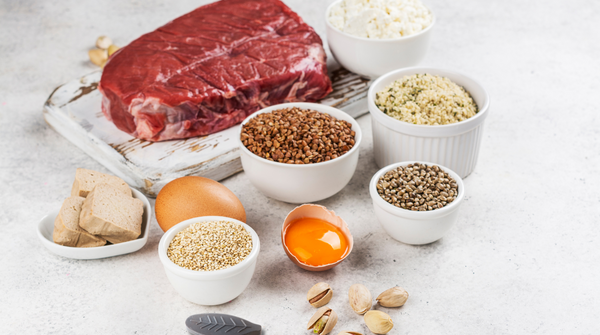What Scientists Say About Iron Supplementation: A Recap of Recent Findings
Although iron deficiency is the leading most common micronutrient deficiency in the world—affecting about 1 in 3 people\— scientists have different opinions on the subject of iron supplementation...

According to a recent BBC article, how to tackle iron deficiency is a hot topic for debate. Although iron deficiency is the leading most common micronutrient deficiency in the world—affecting about 1 in 3 people— scientists have different opinions on the subject of iron supplementation (Xu Han et al., 2022). Here’s what you need to know…
What Do Scientists Know About Iron Deficiency?
The article starts with some foundational information. Iron deficiency is a lot more common than most people realize. It’s especially common among:
-
Children
-
Women of reproductive age
-
Pregnant individuals
-
Endurance Athletes
-
Vegans/Vegetarians
-
Elderly
-
People with certain medical conditions
Why is Iron Deficiency Confusing?
The tricky part when it comes to iron deficiency is in how the symptoms present. A lot of times symptoms often go unnoticed since many symptoms, like chronic fatigue, can easily be considered just a “part of life”. Additionally, it can show up differently depending on the age group.
According to Heamatology.org, common symptoms associated with iron deficiency for the general public include:
As you can see, iron deficiency may not be immediately obvious, but don’t worry, it can easily be diagnosed with a blood test and addressed through various treatment methods.
What is Considered Iron Deficiency?
Scientists recognize that iron deficiency refers to when you have insufficient iron stores, and that iron deficiency-anemia (IDA) occurs when the body is not able to produce enough healthy red blood cells to carry oxygen around the body due to insufficient iron stores; This means that you can have iron deficiency without having iron deficiency-anemia. A blood test is needed to diagnose both conditions.
"Iron deficiency can be considered a stage prior to anaemia," says clinical haemotologist Sant-Rayn Pasricha, the head of the Melbourne School of Population and Global Health.
Although it seems plain and simple, there is some debate around the markers of iron deficiency and IDA in blood tests due to insufficient research and/or limitations in research studies. But worry not, your healthcare team can make an informed decision based on each individual.
Scientists Take on Iron Supplementation
Scientists agree—iron supplements can be a super effective way to boost iron levels in people who are deficient and need to raise their iron levels quickly. But if you’re not showing any symptoms, you might not notice much of a change when taking them. Everyone’s body is different, and sometimes the benefits are happening behind the scenes (Dr. Sant-Rayn Pasricha, 2021). Additionally, due to side-effects from iron supplements and its impact on the microbiome, relying on it as a long-term solution isn’t ideal.
Iron Supplementation for Children
Some studies show that even though supplements do help boost iron levels in babies, they might not always reverse or prevent all the related health issues. This tells us that even short periods of low iron can leave a lasting mark—so catching it early really matters! For this reason, current guidelines suggest giving iron supplements to children as soon as there are signs of deficiency—or even earlier, as a preventive step (Sant-Rayn Pasricha, M.B., B.S., Ph.D. et al, 2021, Patricio D. Peirano et al,, 2010, Mengdi Hua et al, 2023).
Supplementation in Babies
Some studies on babies have found that iron supplements might have an impact on their gut health, possibly making them more vulnerable to certain illnesses. (Tanja Jaeggi, 2023). Always consult a healthcare professional prior to making any decisions.
What Happens if You Don’t Supplement?
In a perfect world, a diet with iron-rich foods should provide sufficient iron:
"Diet is the best approach. Your body tends to take it up better. Your body tends to use it better," Corkins says.
This is where solutions like the Lucky Iron Fish/ Leaf can be very helpful because they allow you to make your daily diet richer in iron for the long-term, without any side effects or harm to the digestive system.
"Now, if someone is profoundly anaemic, and you're trying to get them fixed faster – then you do supplementation." – Corkin
At this time, scientists can agree that iron supplementation is an effective and quick way to treat iron deficiency and iron deficiency-anemia, but recognize abovementioned limitations to this approach as well. Nonetheless, the decision on what intervention is best for you, such as pills, transfusions, or fortifying daily meals with the Lucky Iron Fish/Leaf, should be left in the hands of your doctor.
—------------
Sources:
- https://www.thelancet.com/journals/eclinm/article/PIIS2589-5370(22)00029-3/fulltext
- https://www.nejm.org/doi/full/10.1056/NEJMoa2034187
- https://www.sciencedirect.com/science/article/pii/S1389945710002182?via%3Dihub
- https://pubmed.ncbi.nlm.nih.gov/?term=Hua+M&cauthor_id=37143078
- https://gut.bmj.com/content/64/5/731.short
- https://www.bbc.com/future/article/20250312-the-debate-over-when-to-take-iron-supplements
- https://www.hematology.org/education/patients/anemia/iron-deficiency




